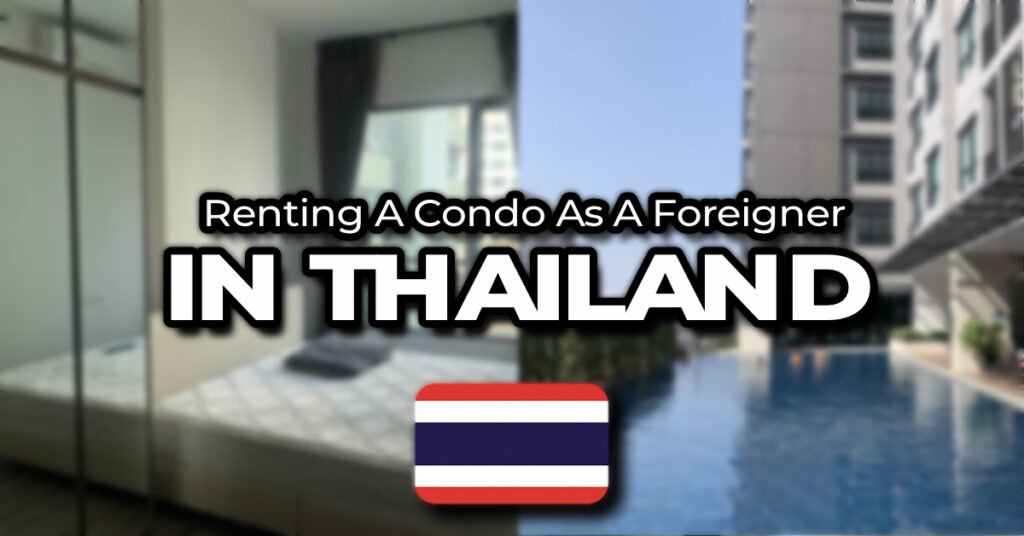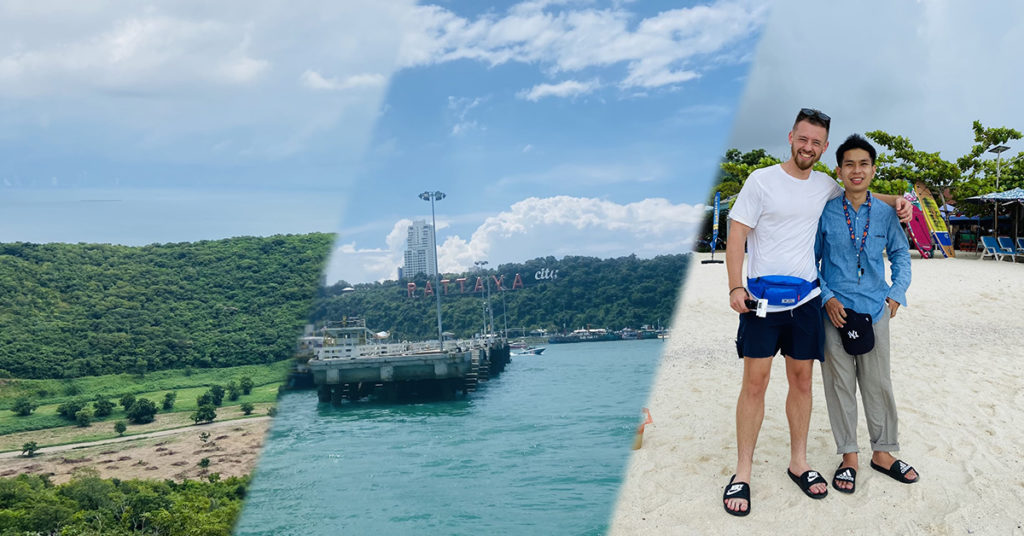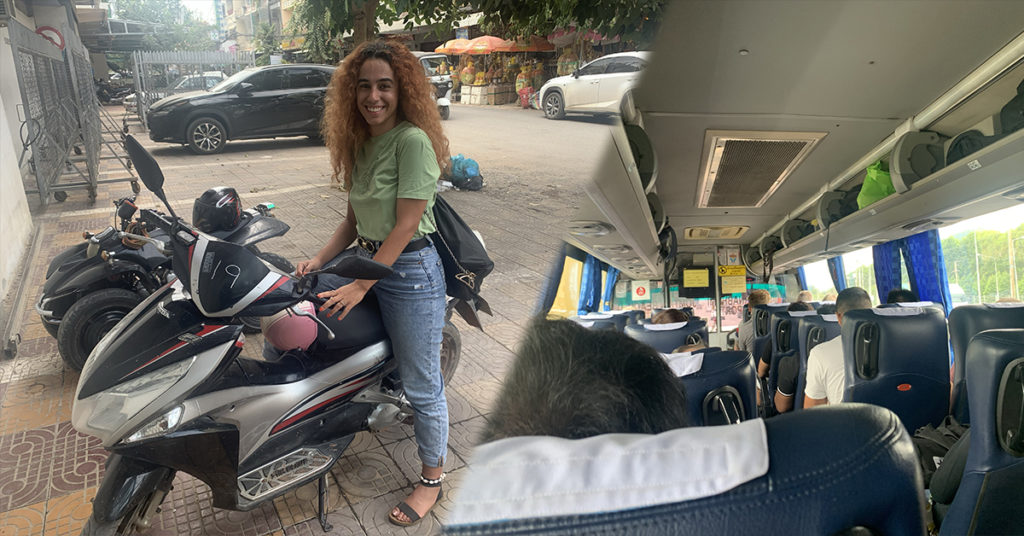So you want to move to Thailand as a foreigner and are looking to rent a condo? You’re in the right place. I was in the same position a couple of weeks ago, so I set out on a mission to document everything that I needed to do, to rent a condo here in Thailand. This article will cover everything you need to know from visas, renting conditions, rough pricing, budgeting to live, and more.
First Things First…
During this process, I highly recommend you use a Google Sheet to write down all the information about the different units you’re viewing, and looking to move into. This will help give you a short break down of what the price is, where the area is located, and it’ll give you an idea of what you thought at the time of viewing, so when you come to actually decide, you’ll have a much clearer picture.
I’ve left the Google sheet I personally used to do this below. It takes into account my budget, and how long I’m staying (6 months). You can make a copy and adjust the settings to your own personal preferences.
Finding Units To View & Inquire About
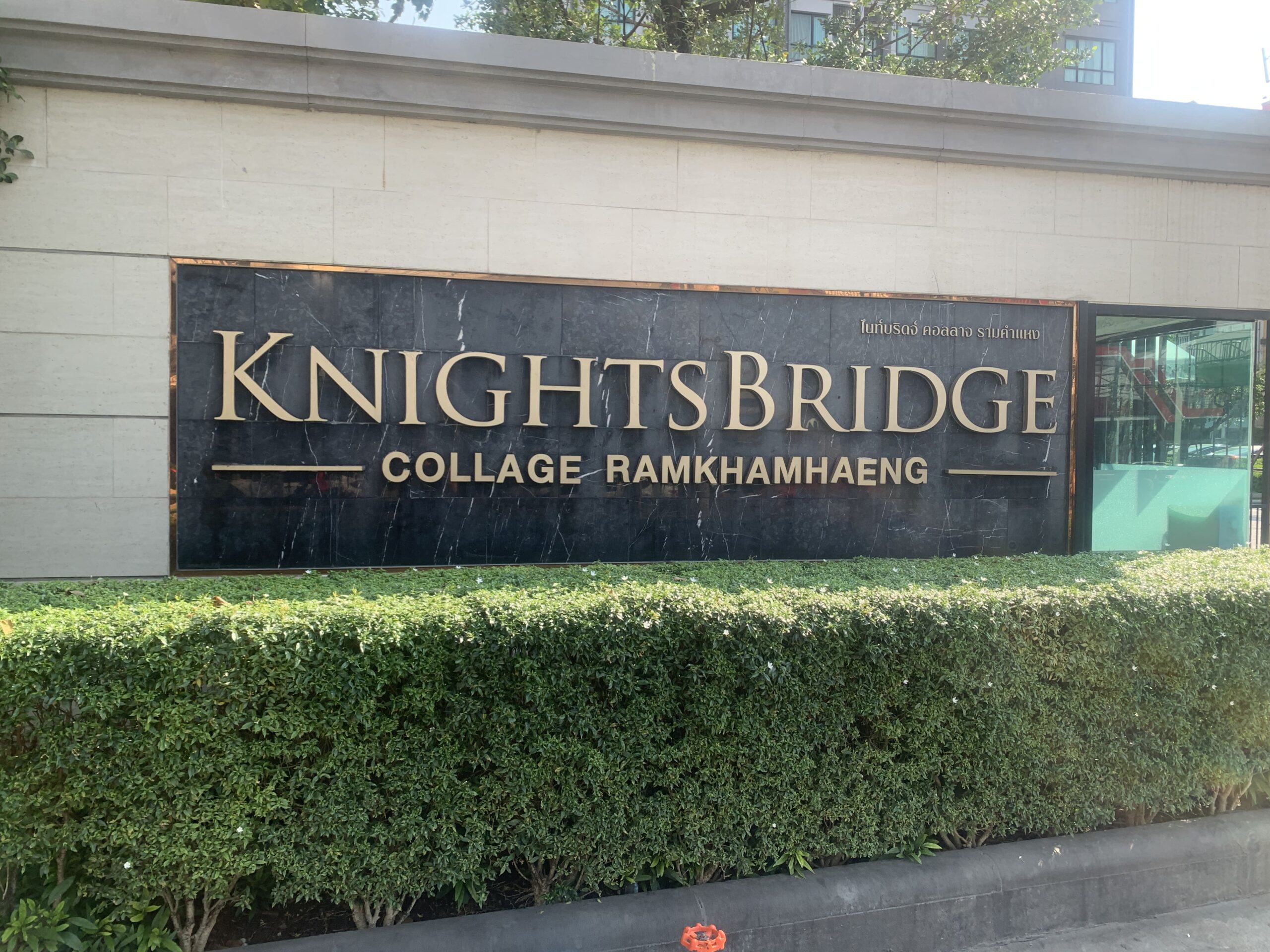
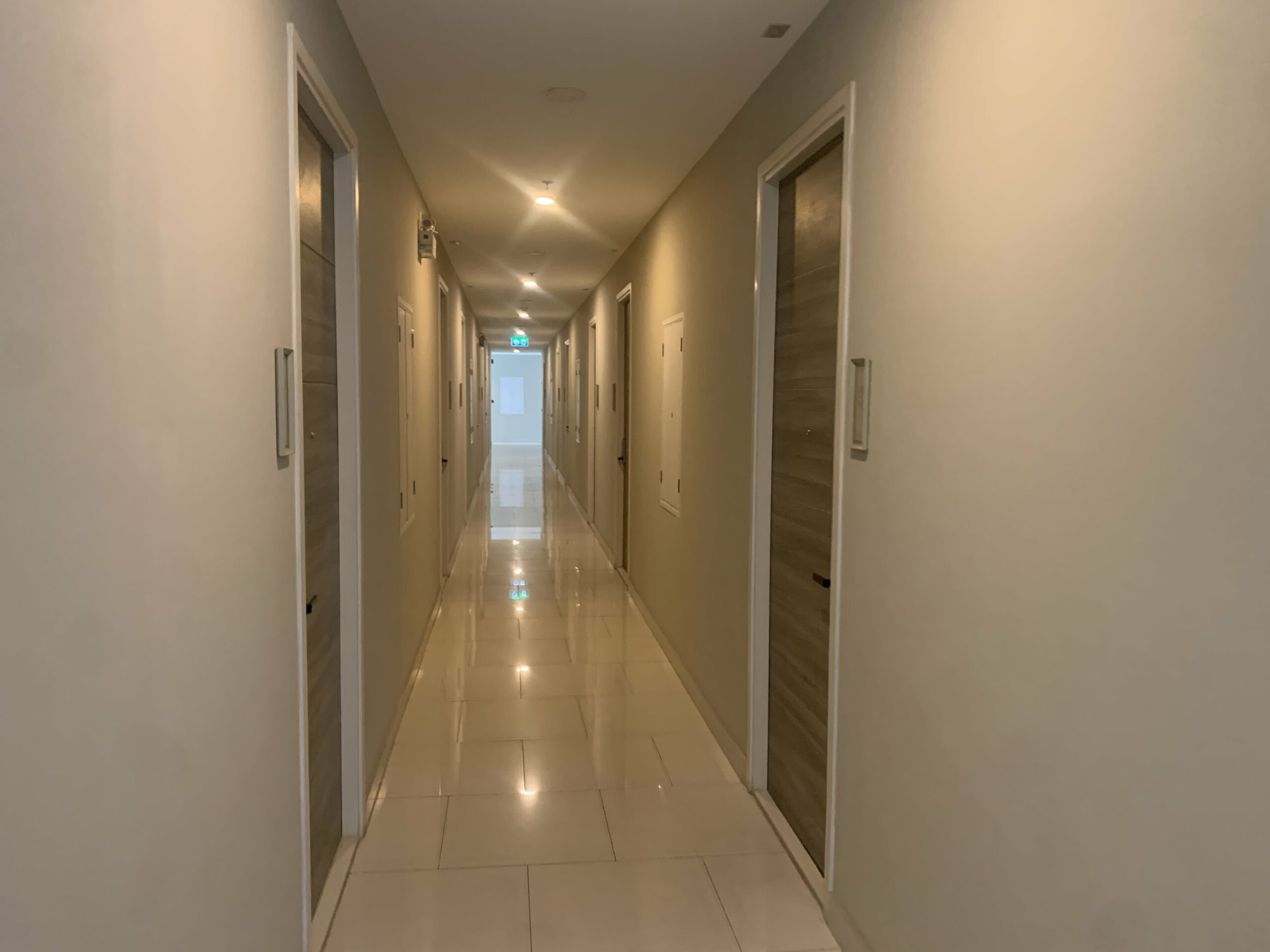
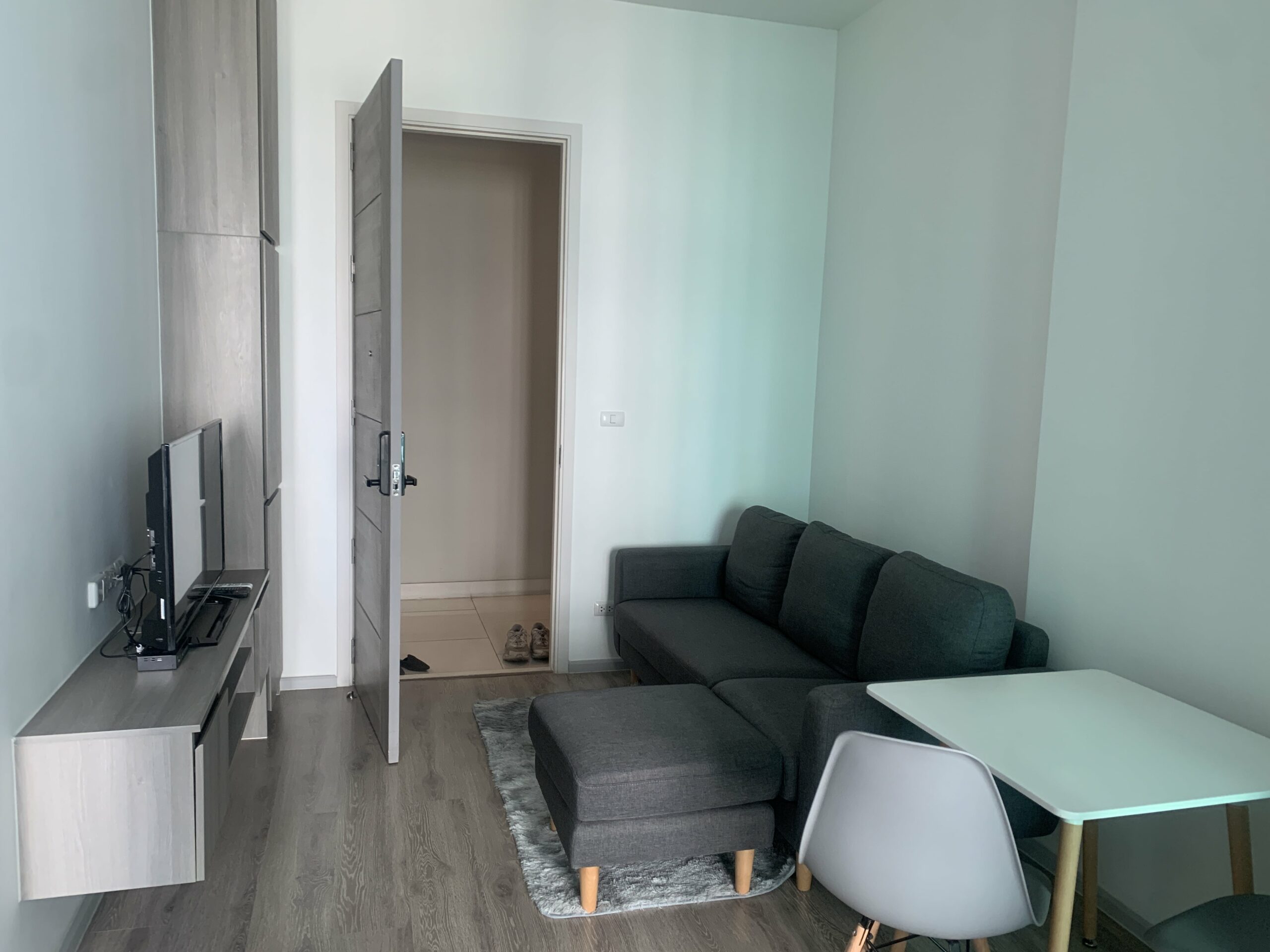
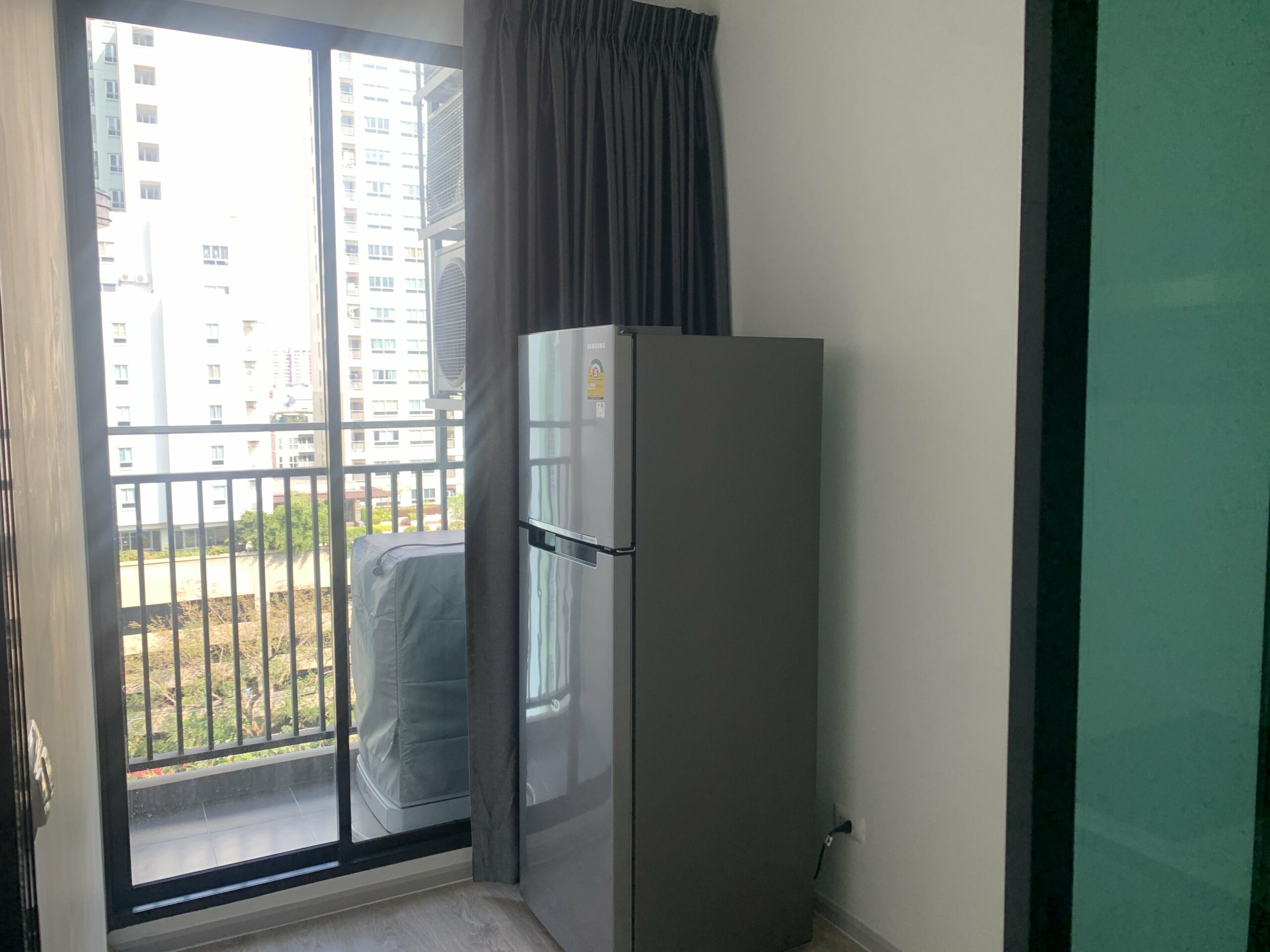
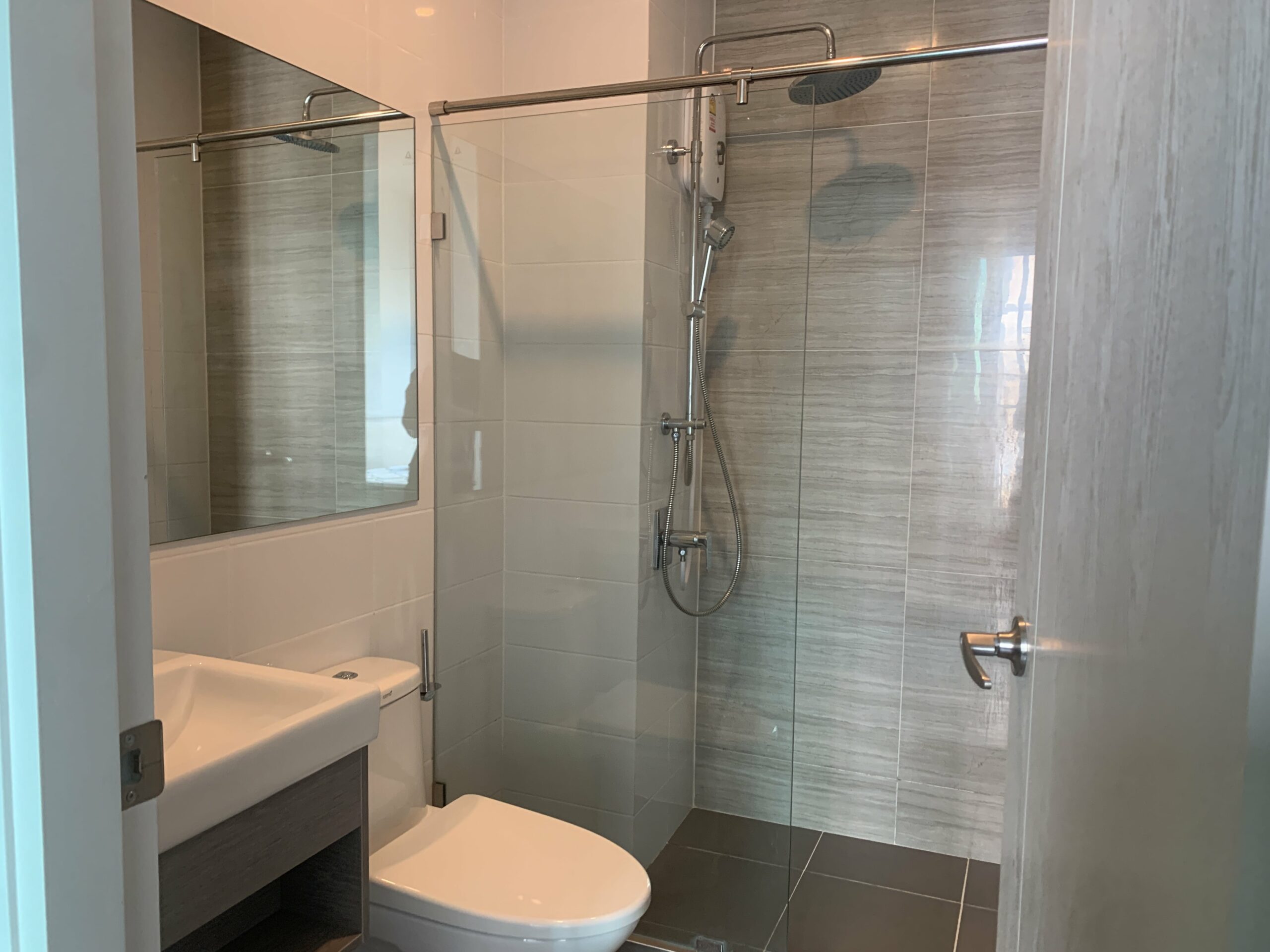
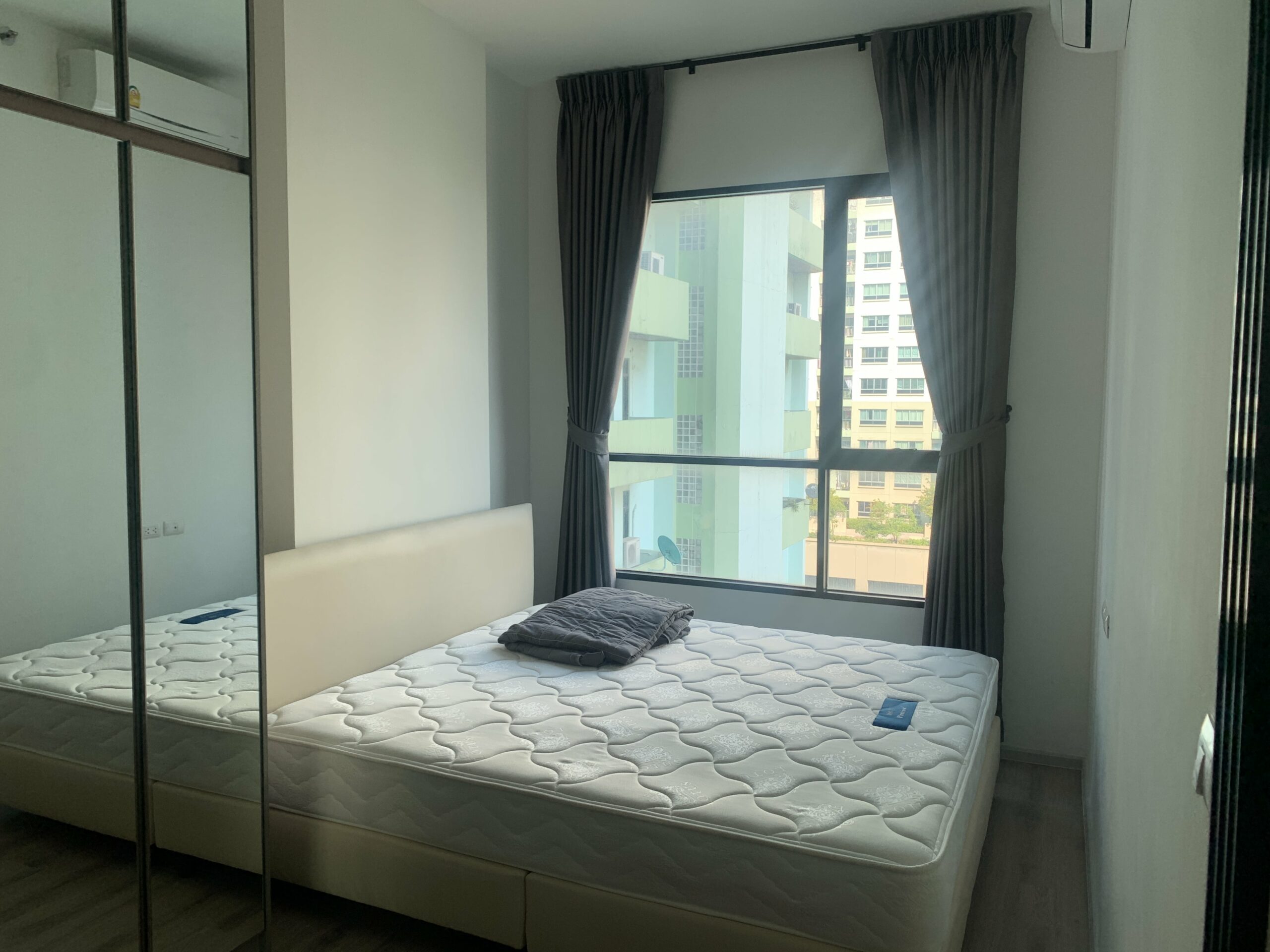
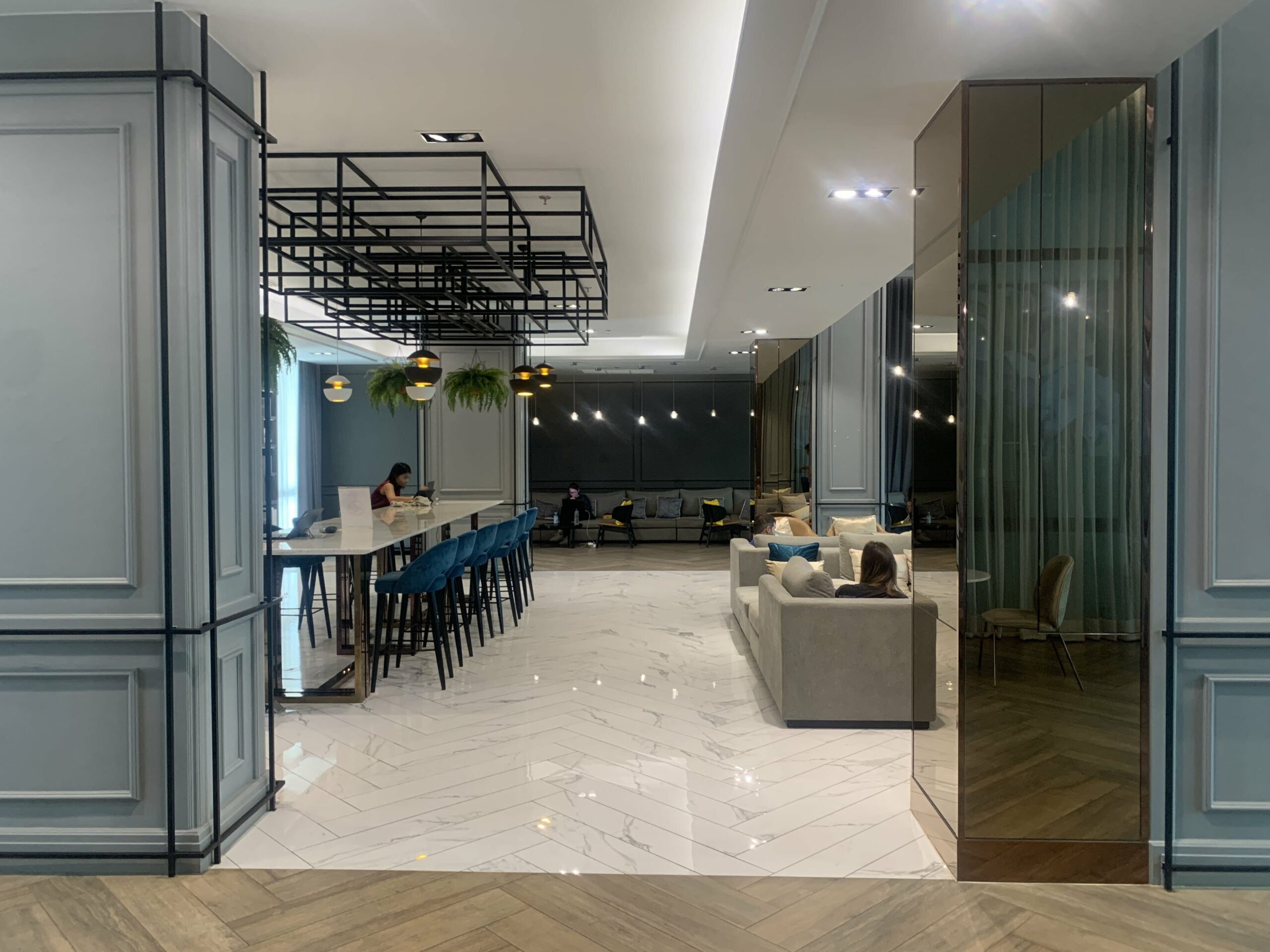
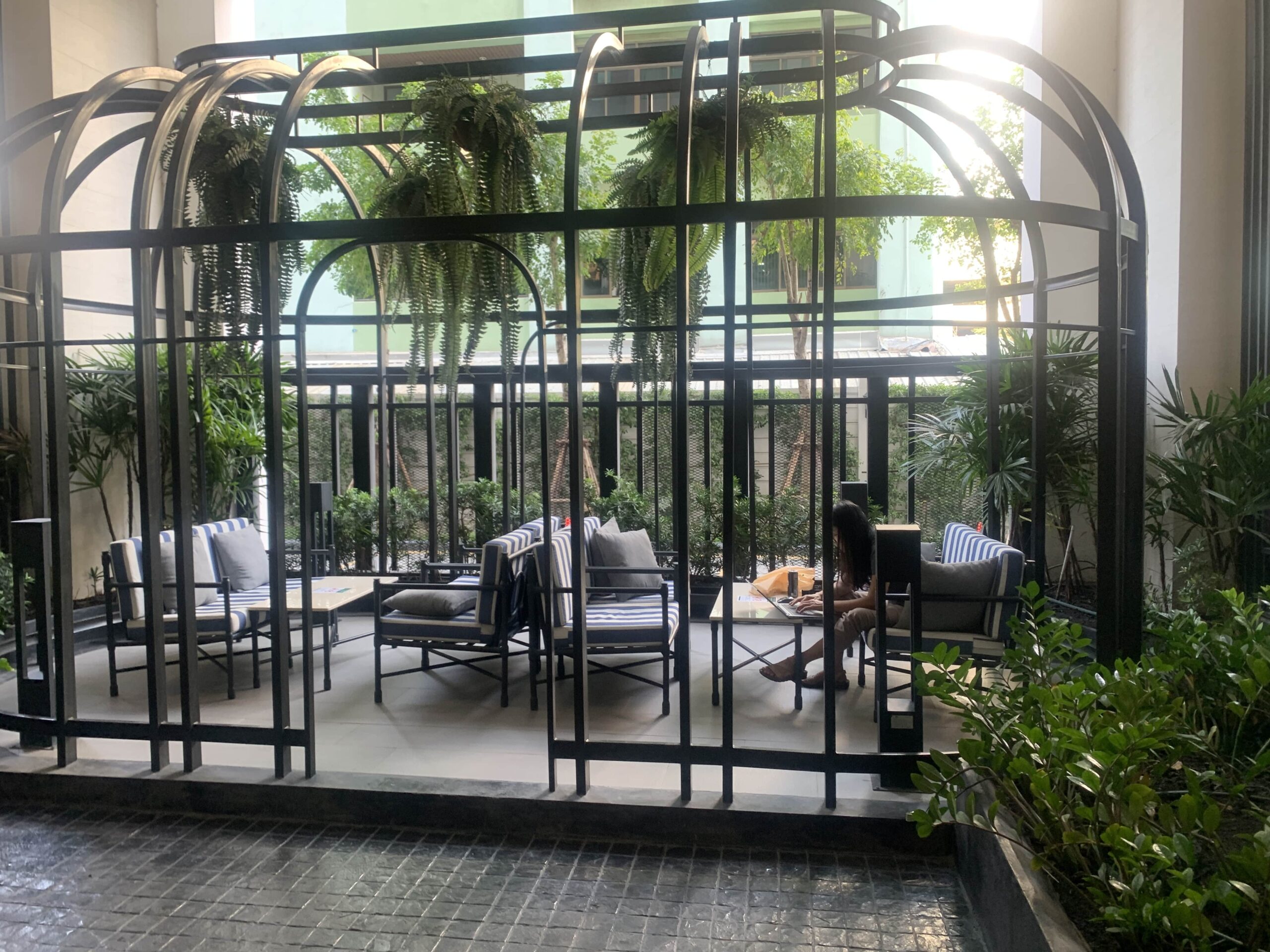
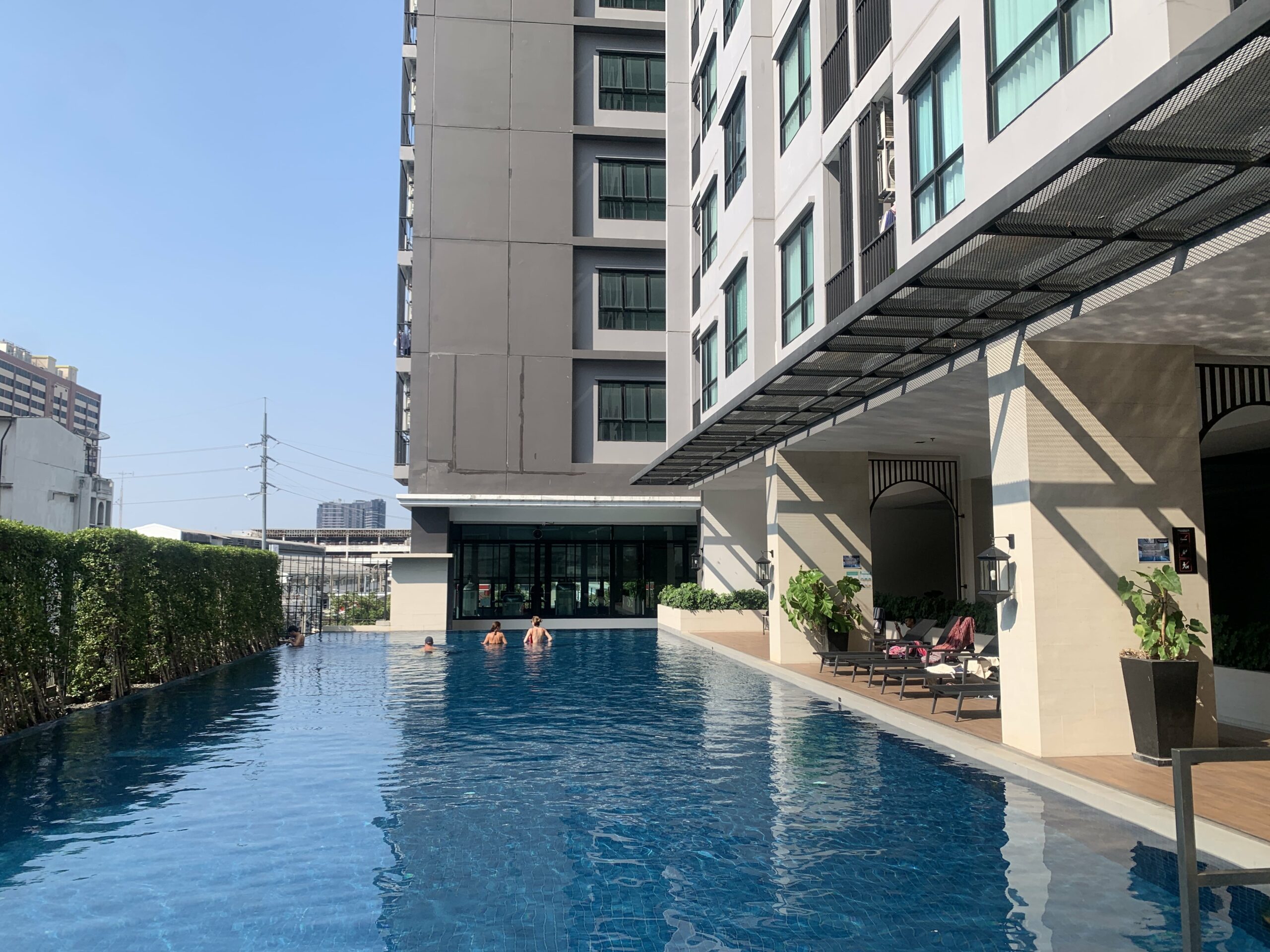

If you’re seriously planning to move to Thailand for more than a couple of months, then you need to come here first and experience what it’s like, and scout + take a walk around different areas to see how they feel, what they’re like at night, during the day, how the traffic is, noise, where the rail links are etc.
It’s virtually impossible to do this online, and you’ll be missing out on a lot of on-the-ground information if you don’t.
To find condominiums for rent, you can do 3 things:
- Use Line to converse directly with the condominium units (best option, with best prices)
- Browse the listings on RentHub, or equivalent website (cheap listings, find university style, basic accommodation for 2000-5000 baht per month, depending on area)
- Use Airbnb, but send your number in code to get the direct rent price, without extra fees
- Post on Facebook marketplace groups (beware some of these target foreigners and will specifically charge more – covered more under heading)
There are more ways you could scout for new properties, but I personally found these 4 to be the best. In this section I’ll do my best to cover each of the above in-detail, so you can use them to find the same.
Straight From The Horse’s Mouth (Using Line & Viewing in Person)
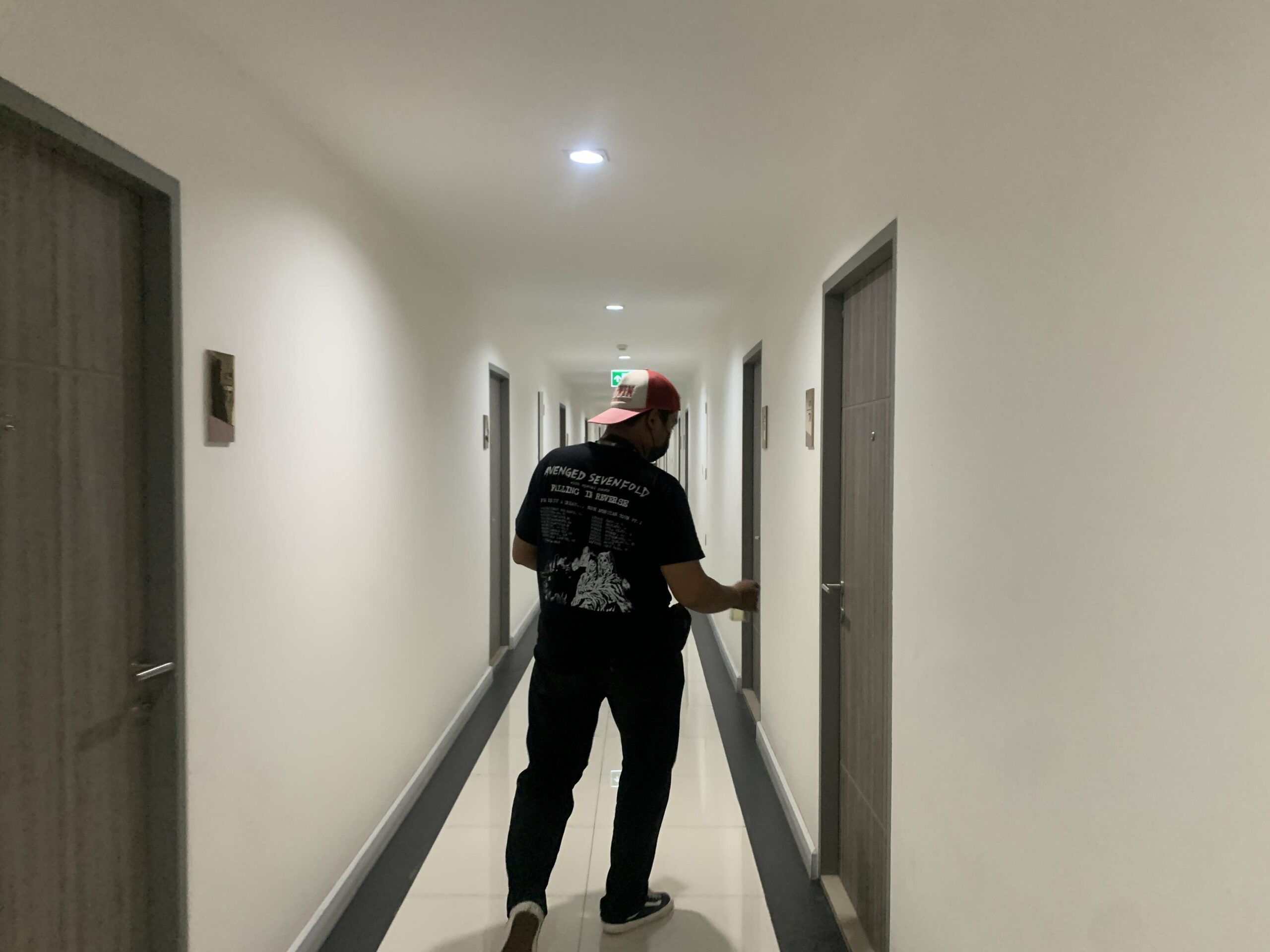
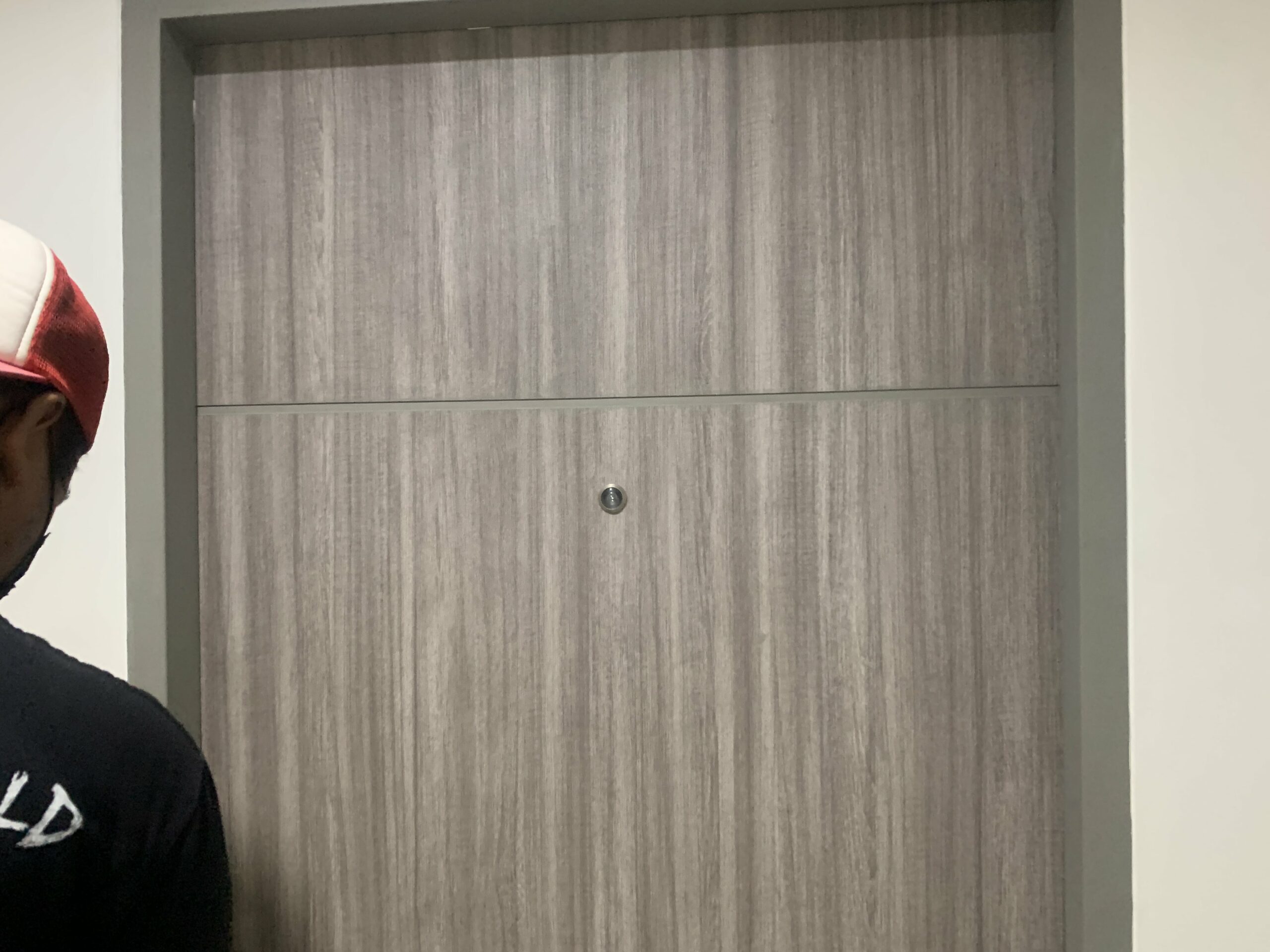
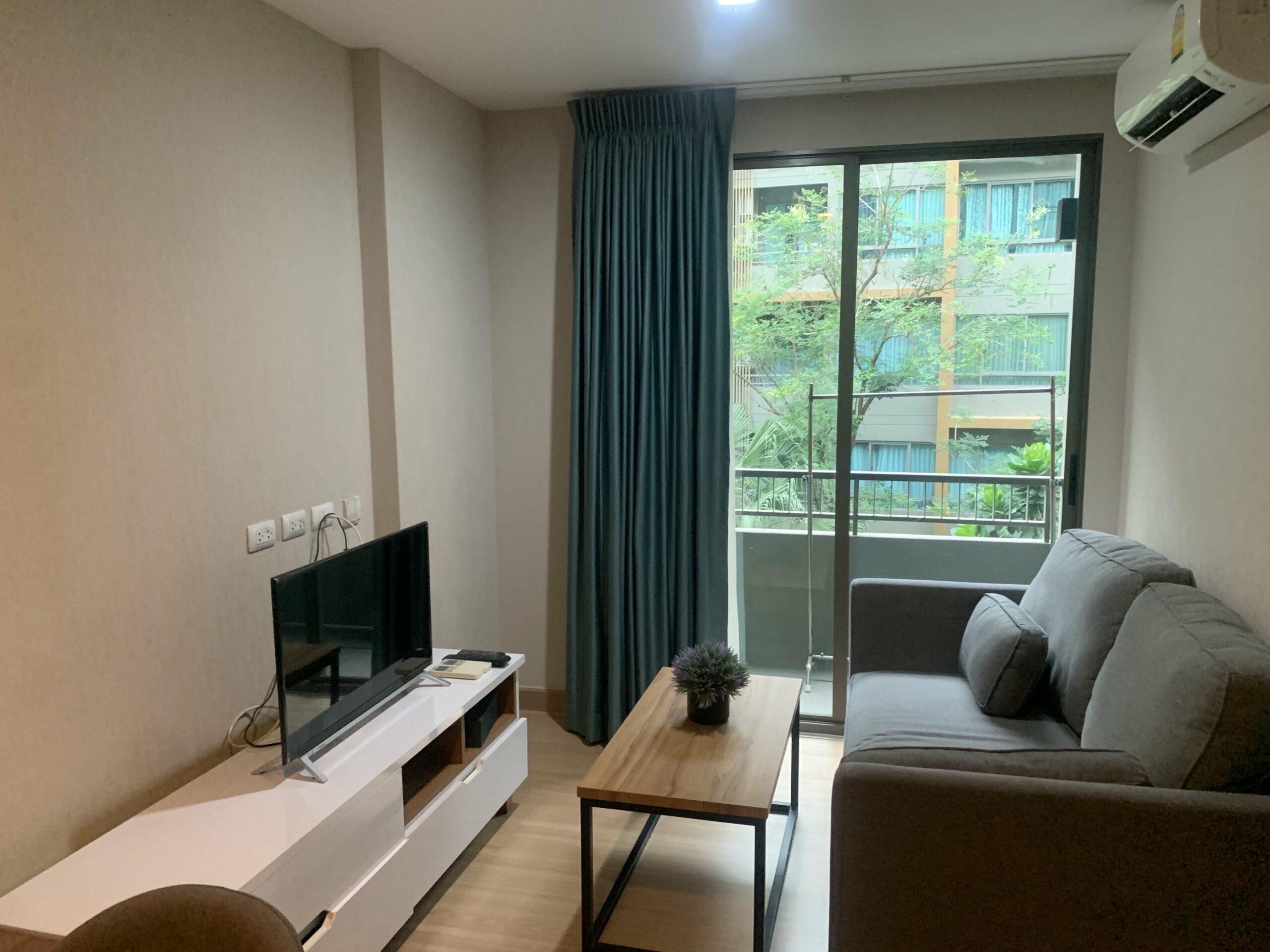
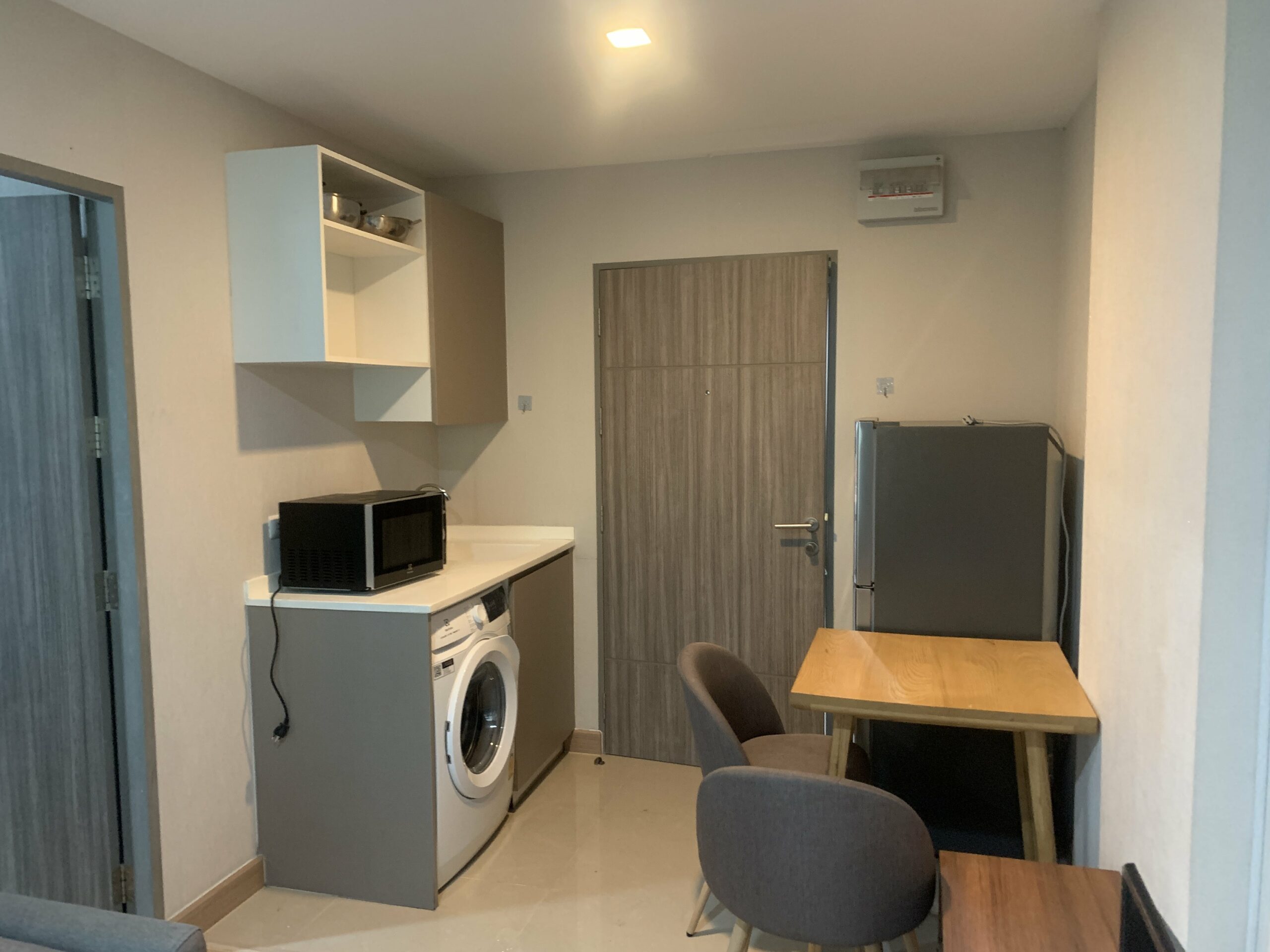
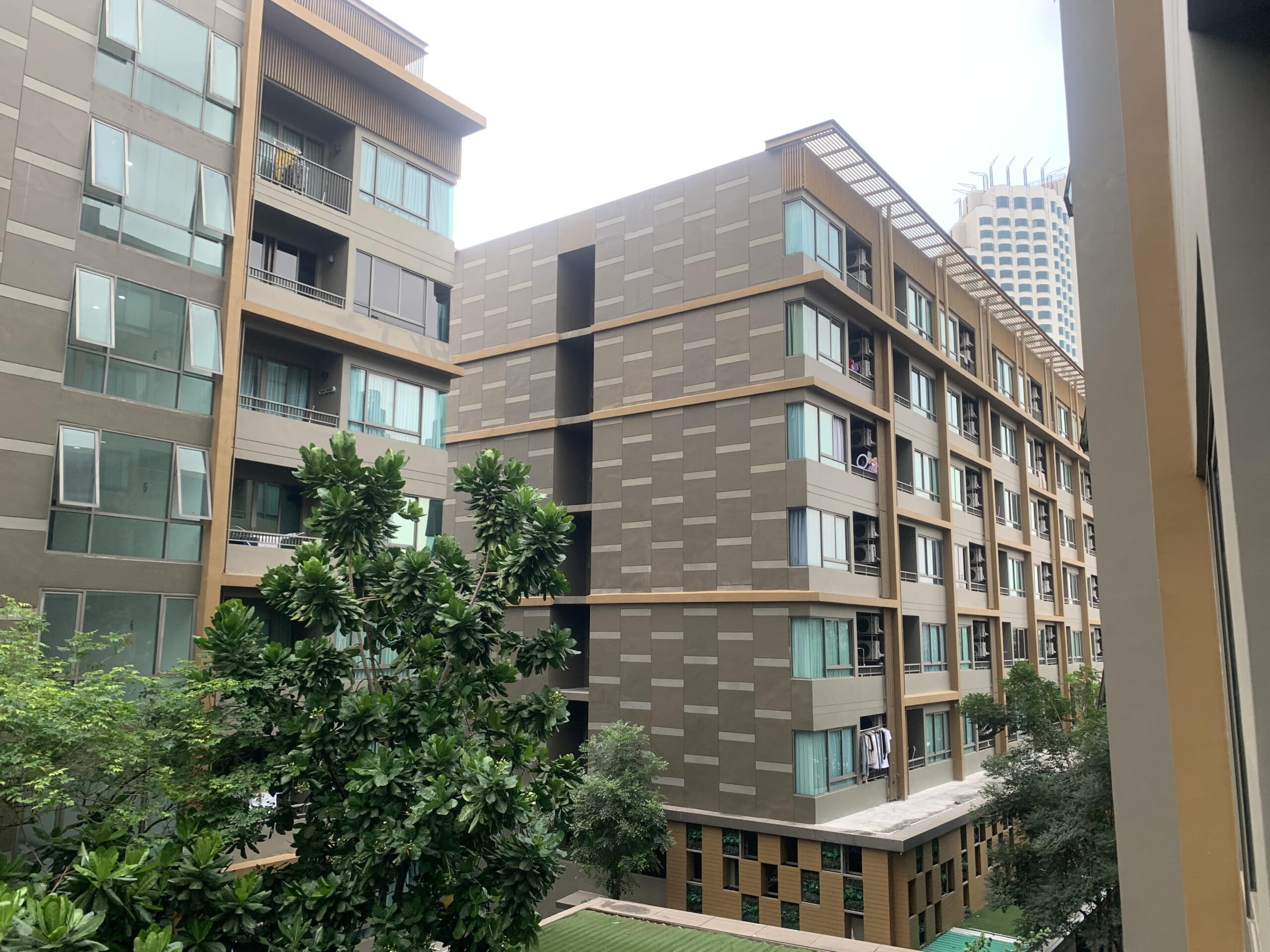
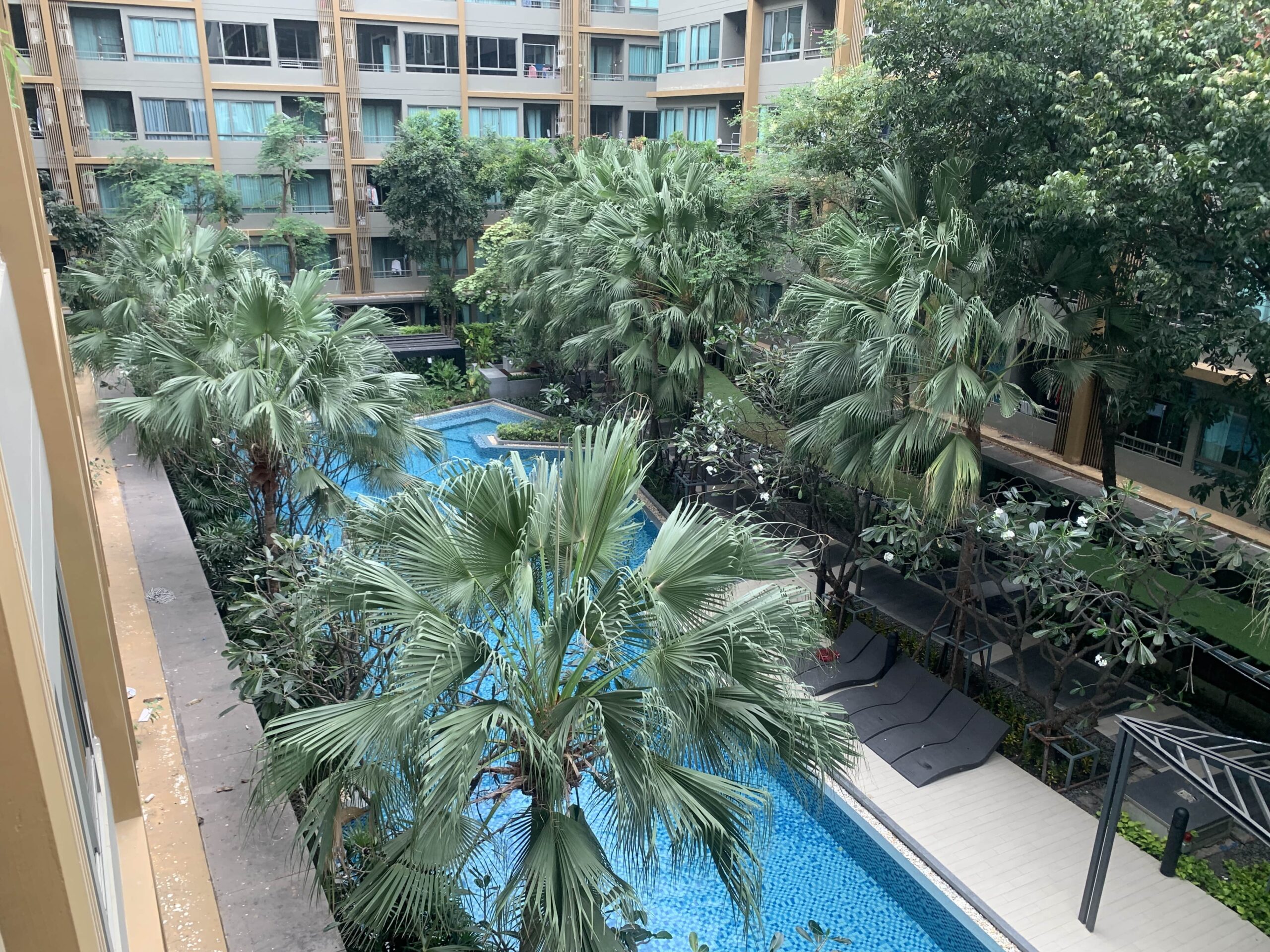
This is the best way to scout condominiums in Thailand. While you’re here, I’d recommend getting a motorbike or hiring some form of transport for the day. Travel around different areas, and you’ll see advertisements for new and available units.
(the best way to get around is to rent a motorbike for the day and drive around looking for places).
As you’re driving around, stop, get the phone number of the condo units you see and like the look of, and add them using an application called Line. You can get this information from Google Maps, or you can head directly to the reception of the condominium and ask. Often, you can ask them to view the condo right there and then to see if you like the place. If you like it, then take their details and you can negotiate pricing with them.
Most condominium units will have a sales office at the front (looks like something similar to the image below).
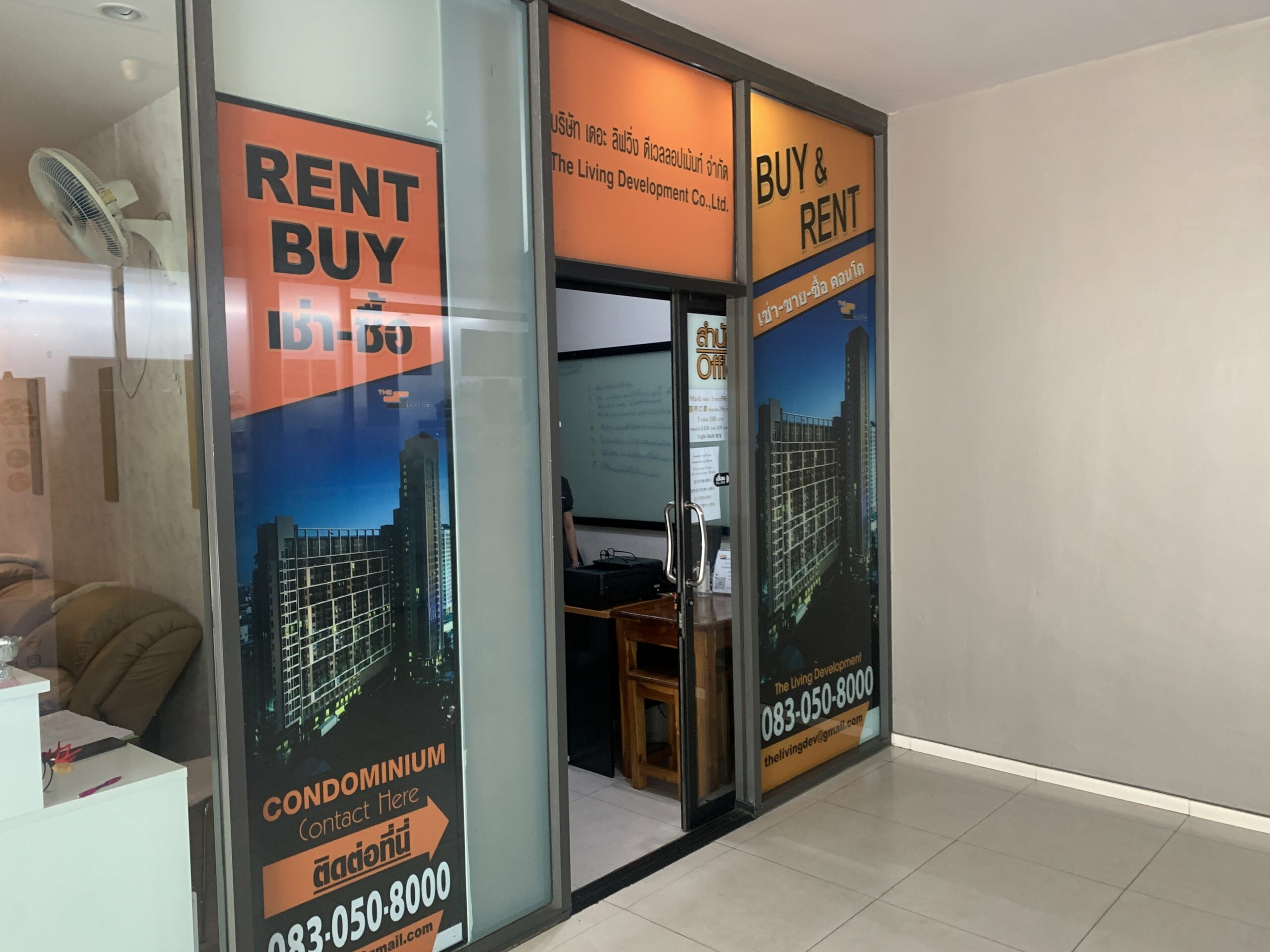
If you have the time I’d recommend talking to them and trying to get a viewing, finding out the price etc. Remember you want to negotiate the first price they give you. If you’re a foreigner they’ll usually give you a higher price right away.
One tip I’d recommend is – if you know how long you’re staying, you can offer to pay 3-6 months upfront and get a discount this way. A lot of agents will jump at this idea, and give you pretty hefty discounts. For an entirely upfront payment of 6 months, this could cost anywhere between $3000 – $6000 total.
Once you’ve collected a lot of numbers, start contacting them about pricing. Please always negotiate the first price, it is never the true price and they will often try to get more out of you as a foreigner.
You can also theoretically do this before you go using Google Maps to search for condos in the area, checking the reviews, the photos, etc., and then adding their details using Line, but it’s much better to drive around and take note of the things you like, get an idea of the area etc. This takes more time, but it saves a lot of sifting out options later on, after attending viewings and realising the area wasn’t so good, or not as well connected as you might have liked.
If you are driving around the area you know whether or not you like it, and you know whether or not you want to even bother going into pricing, viewing and negotiation stages.
Cryptographic Messages on Airbnb To Avoid Fees
A great way to scout the area is to use Airbnb. Now, when you look for monthly deals on Airbnb there will be a huge discount applied. But, you can get an even bigger discount if you can manage to talk the host of the site. Sending your number over Airbnb is not allowed, because it cuts Airbnb out of their cut, but if you can get it to the host, they will gladly let you book without using Airbnb.
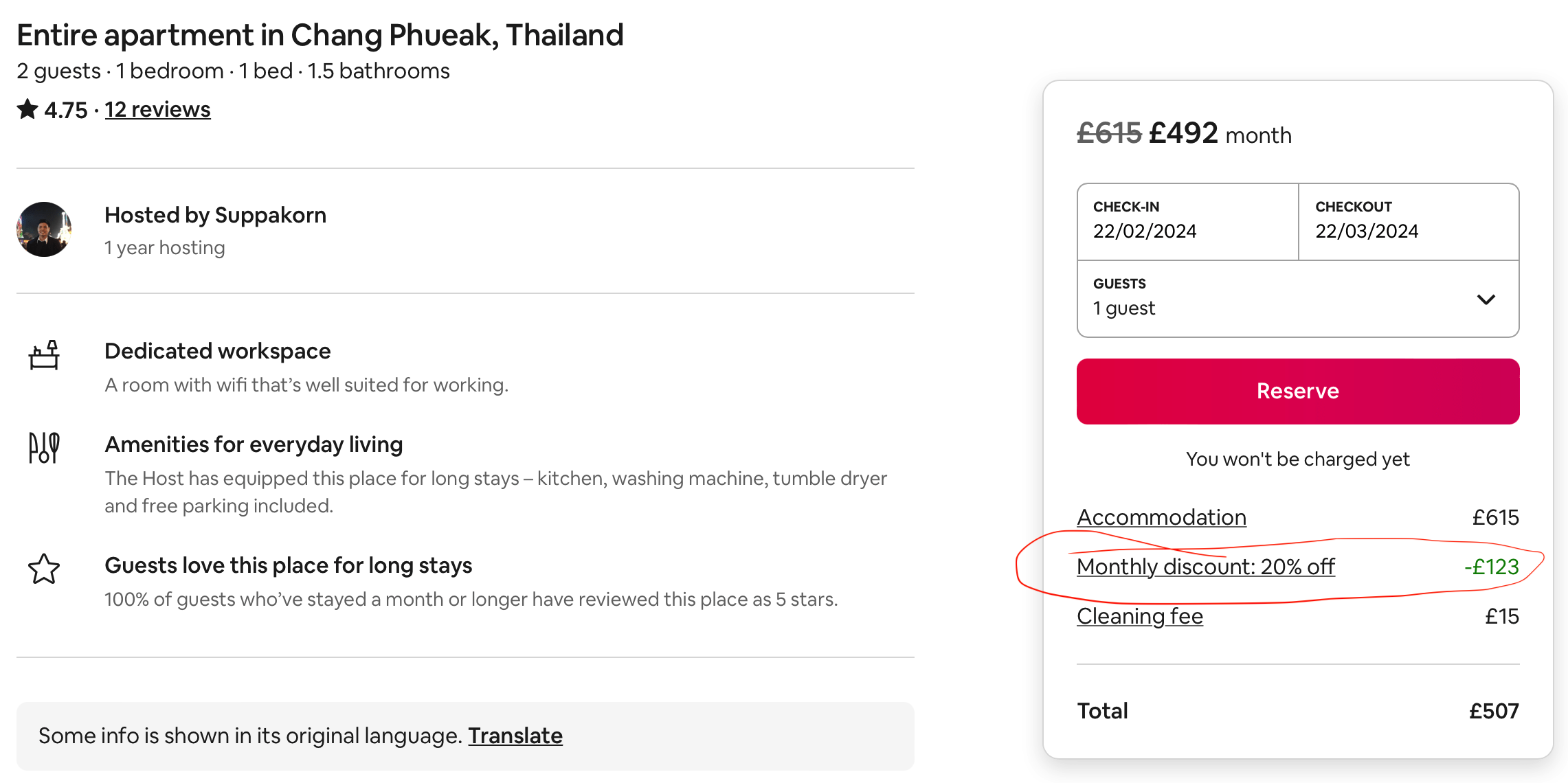
If only there was a way to do this.
Well, you’re in luck – because there is! You just have to send it cryptographically (sort of).
Once you’re on the page of the condo you like, scroll down until you see the “contact host” button. Click that, and then you’re going to send a message that’s a mix of numbers and words, asking the host to call you.
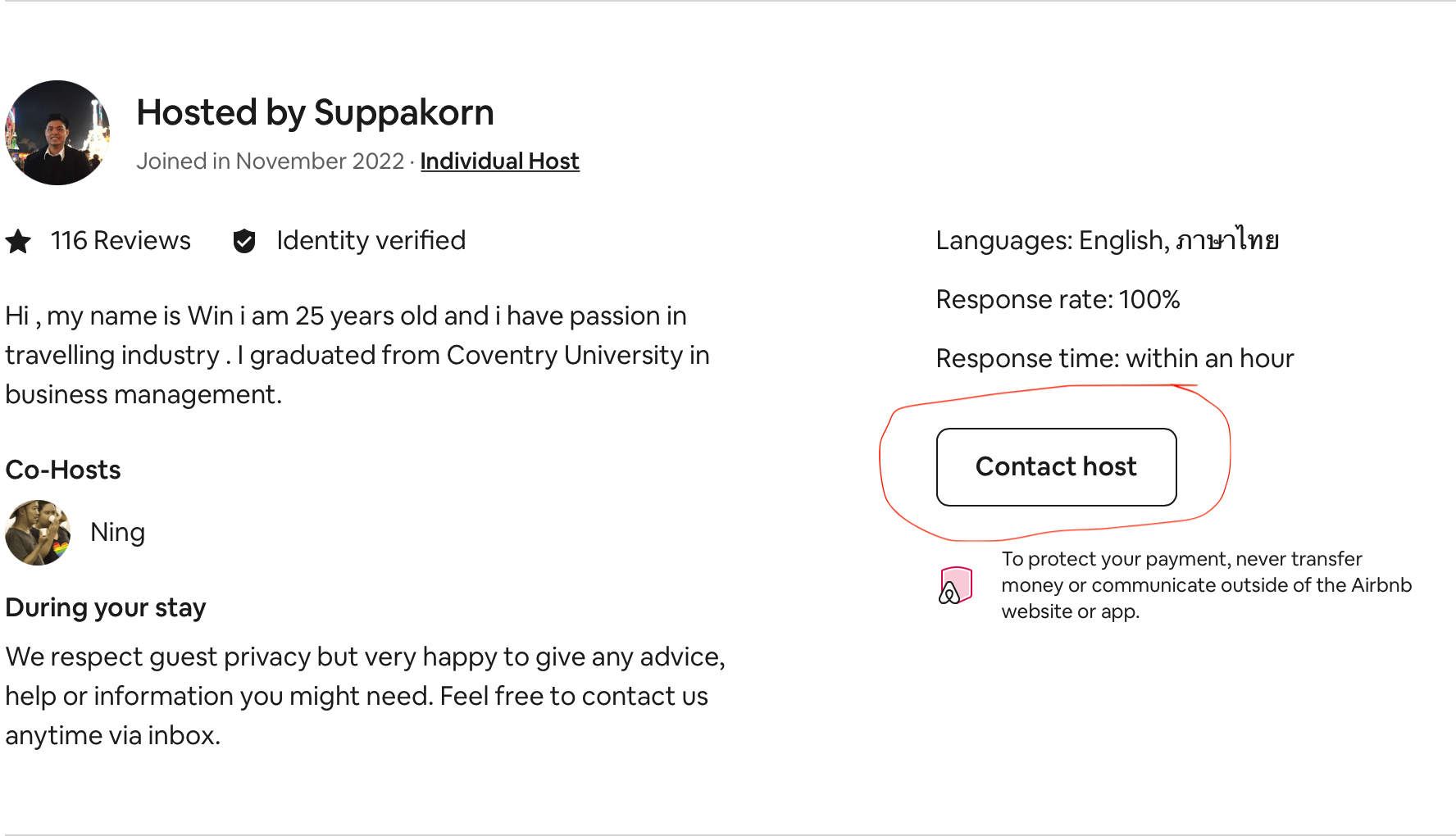
Something like “I’m interested in renting this long term 3-6 months, please contact me: one, 7, seven, six, five, four, 3, 6, etc.
After you send this, just wait. 90% of the time you’ll get a call or a text come through from them, and then you can negotiate a long-term price from there. Most hosts would be more than glad to take a tenant who’s willing to pay for 3-6 months, over trying to be fully booked out on Airbnb 24/7 with all the fees included. Now, of course, this won’t provide you with the best cost vs going straight to the agent to rent a condo for a long time. But, it’s an easy way to find a place quickly, and if you need a short-term deal, then it’s best to use Airbnb.
In Bangkok for instance you usually have to sign up to a 6-12 month contract to rent a condo. If you go through Airbnb, you don’t have to do this in Bangkok.
Using Facebook Groups To Secure Deals
Facebook Groups is another fantastic way to find deals. Just go on Facebook, go to the groups, and search for something like “[insert area] condo rentals”. Many groups should pop up where rental agents will post their condominium units, ask to join them and check out the options available.
You can also put a post in the group. State your budget, exactly what you’re looking for, and how long you’d like to rent for. You’ll get a load of agents sending you messages with their condos up for rent. You’ll also find some couples who are looking to move somewhere else and rent out their previous place.
Again, make sure you always negotiate the first price they give you, and don’t back down.
Browsing Using Rent & Accommodation Websites
The best website that provides the most realistic prices of monthly rent for condominiums is Renthub. This is great for both budget, and luxury finds, but is specifically great if you want to find extremely cheap and cheerful student-style accommodation for a short stay here in Thailand. You can find places in Bangkok anywhere from 4000-20,000 baht+.
The 4000-5000 baht per month options will not be pretty, but they will be located very centrally to universities, and the centre hubs of the city. If you want to stay in the city cheaply, it is more than possible, but you won’t be living in luxury by any means.
To give you an example of a place you might stay for that price, I left some images of a viewing I did for one of these places:
(this is not a condo FYI, it’s extremely cheap student accommodation for those looking to really, really save money)
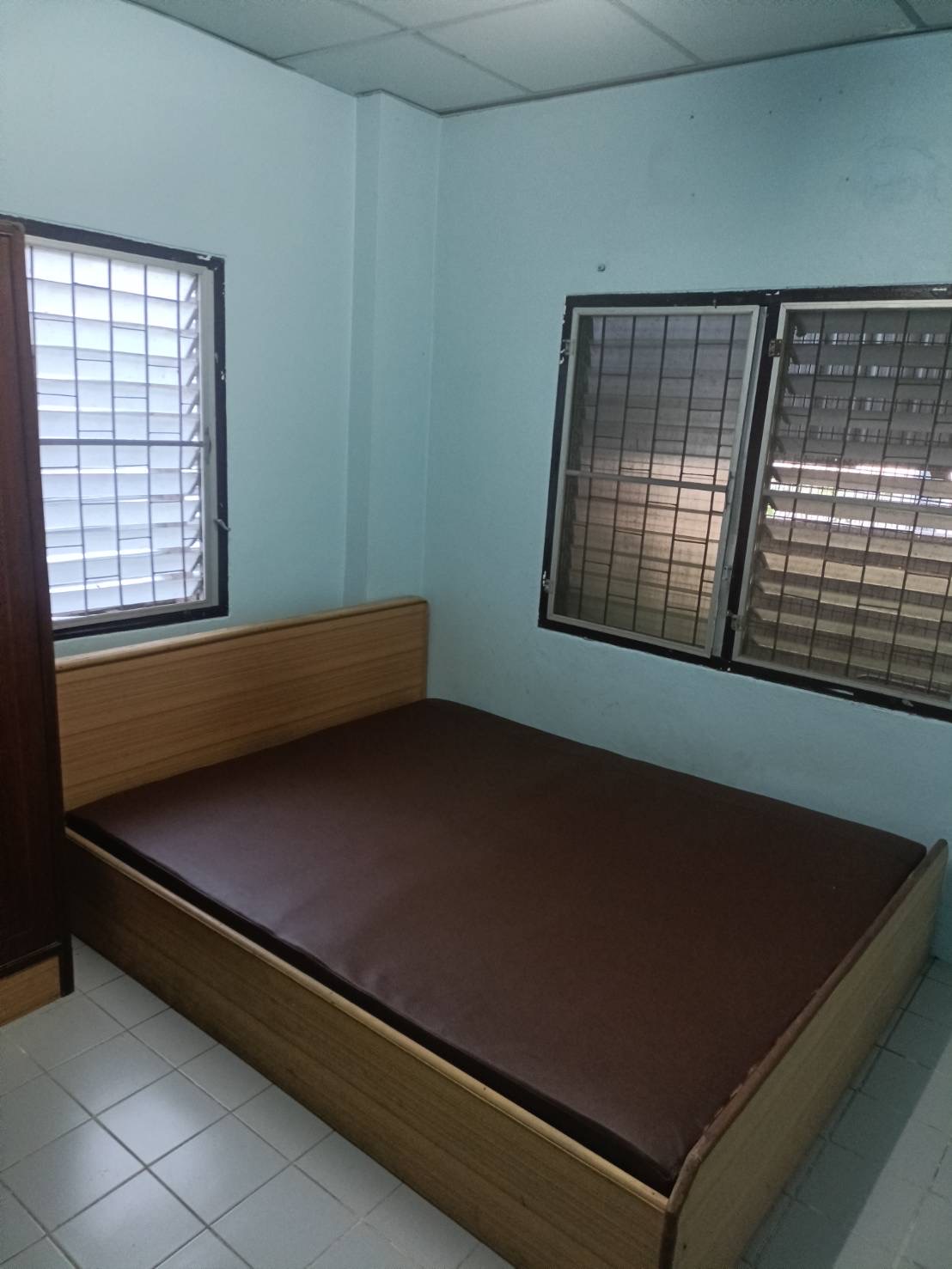
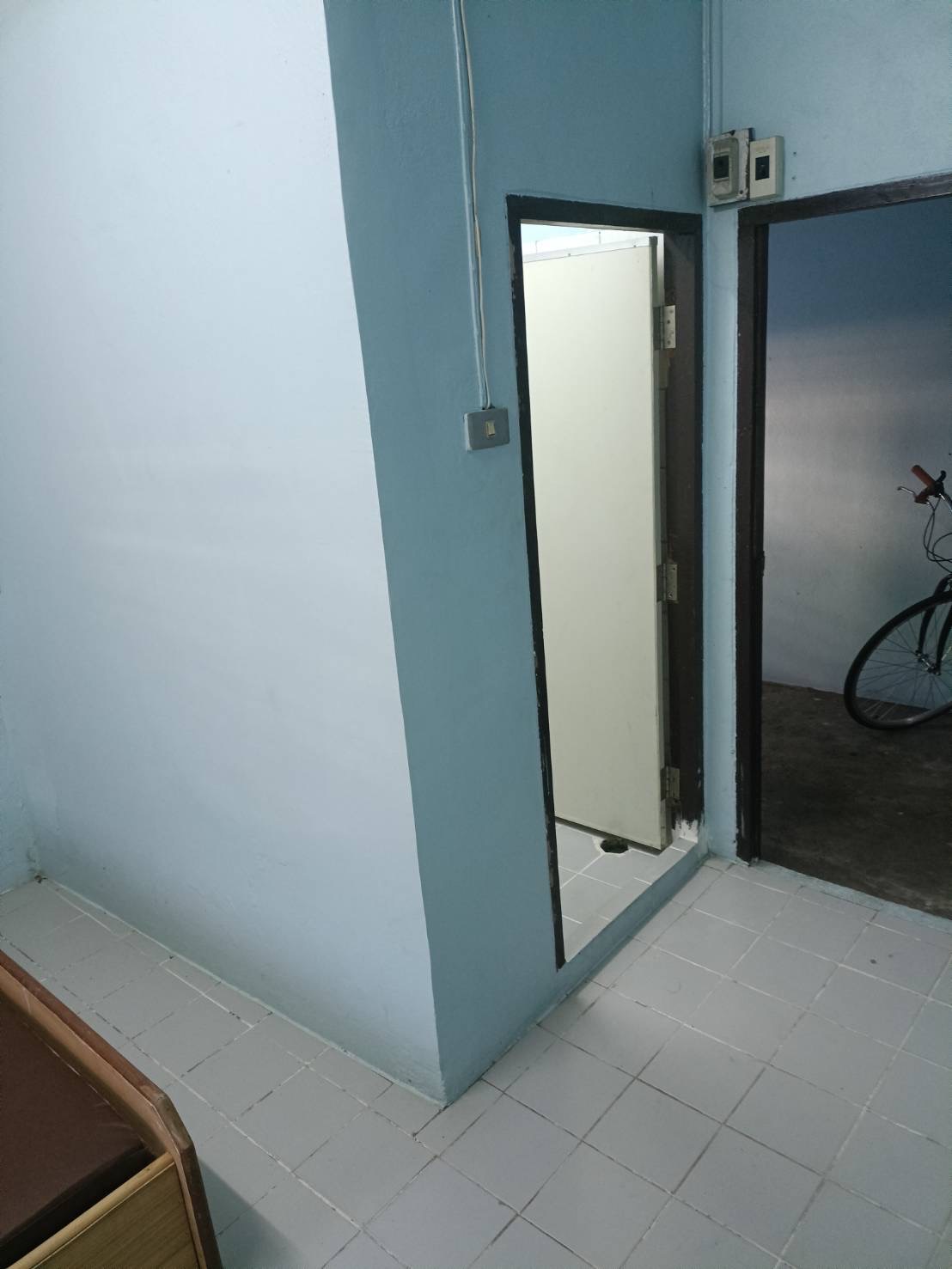
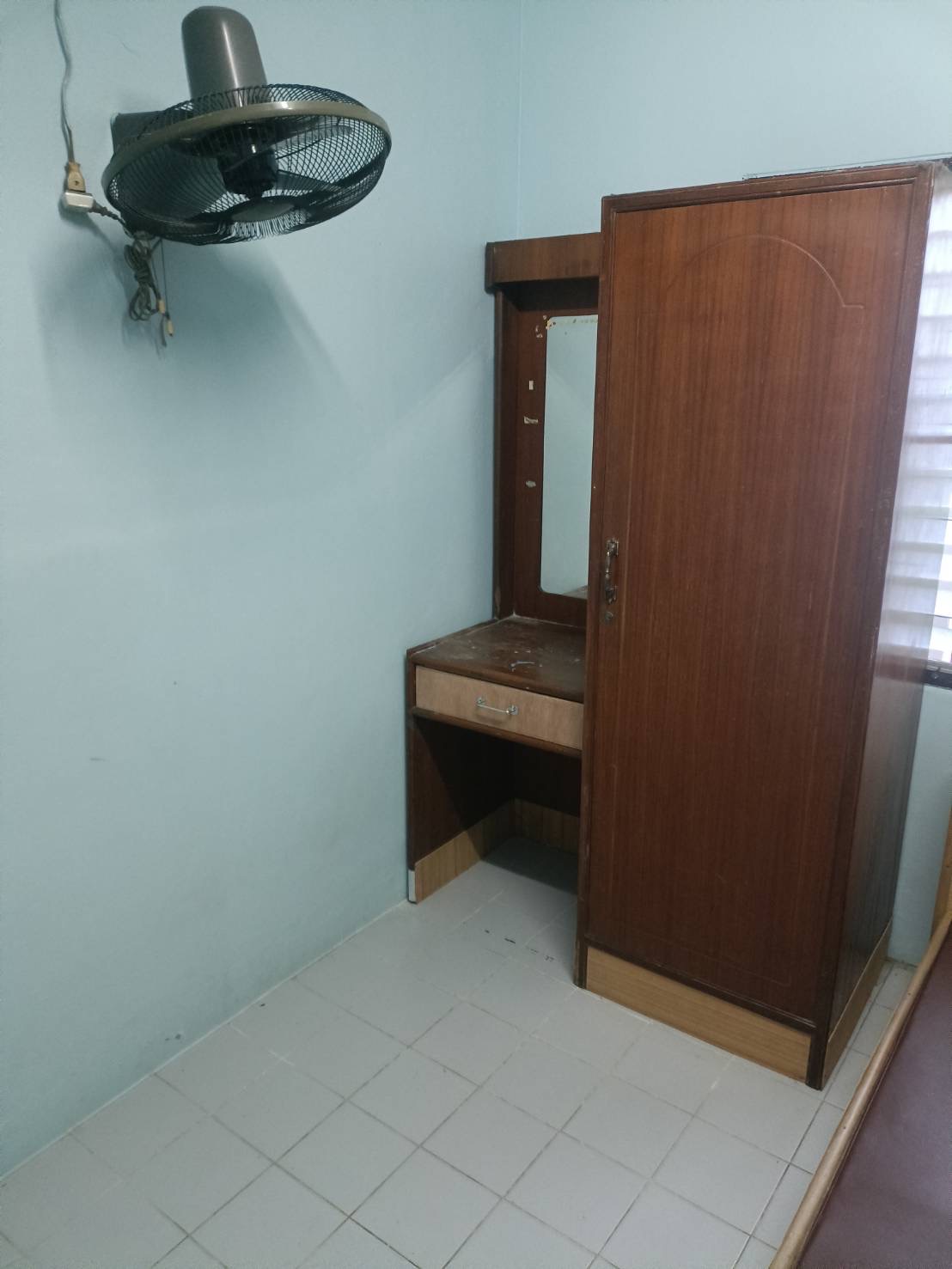
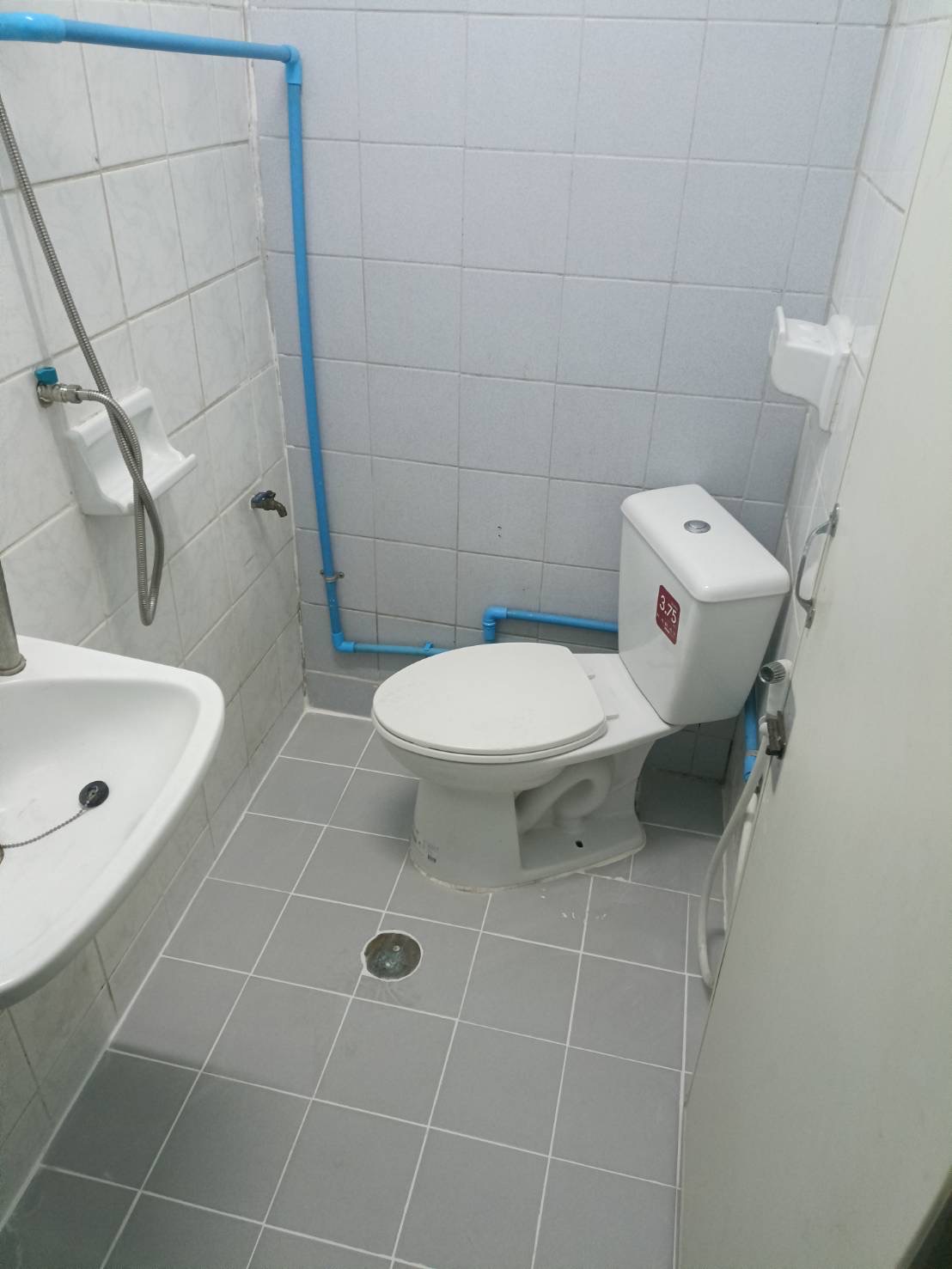
Viewing The Condo Unit
You’ll want to view the place you’re going to be staying beforehand and check for things like:
- AC Unit – noise, has it been cleaned? Well maintained?
- Closeness to amenities – washing machine, rubbish area (don’t want to be near here), etc.
- Internet – Which ISP? Is fiber installed?
- Damages – Water damage, mold, infestations
- Water – drainage, pressure, etc.
- Maintenance – Who pays for the maintenance?
- Furnished or not
- Noise – check for noise at night
Most places will let you view straight away when you arrive, but a lot will show you a showcase room. If you’re serious about staying for a long time, you should look at an actual room that has been used or is new.
Another important thing to check is the turnover of people in the building – how many people have lived there? What’s the average length of stay? Ask some of the people who live there how they feel about the place too. You should also check the area out both during the day and at night. Sometimes the condo is amazing, but the area just doesn’t feel right, there’s not a lot to do and it’s too far out from the action.
If it’s not properly linked with the rail, and you don’t have other means of transport, then you’re not going to have a fun time. Getting around Thailand is pretty difficult without transport and walking places isn’t the most enjoyable considering the pavements are all covered in obstacles.
Visas and How To Stay in Thailand Long Enough To Rent Condos
There are a couple of visa options you can use to stay in Thailand longer term and get access to renting condos, get yourself a residency permit, and even do things like take a driving test, get a Thai license etc.
There are 3 visa options I will cover here:
- Education Visa (cheapest, most accessible option)
- Thai Elite Visa (most expensive, but easiest option)
- Long Term Residence Visa (for digital nomads, quite hard to get)
ED Education Visa
For the Education Visa, you’ll need to sign up for a course. Most foreigners will sign up for a Thai language course, or a Muay Thai course. Language course is the cheapest option, you can get a 1.5-2 month course for about $200-300, then after you’re approved for that course, you’ll need to go change your visa to an ED visa. This can be done at any immigration and will cost you 1900 baht ($30-40).
This visa has to be extended every 90 days at immigration and will cost you another 1900 baht each time of renewal. You can renew this for up to a year’s stay in Thailand.
Some language courses will charge you obscene amounts to get an education visa (one tried to ask me 38,400 baht for 6 months!!!!) – don’t get it from the language school.
Thai Elite Visa
Probably the easiest option if you have a lot of cash lying around is the Thai Elite Visa. It costs 900,000 baht ($25k USD) and lasts 5 years. There are no annual renewal fees and you will have residency in Thailand for 5 years using this option. I’ve met a couple of Chinese people here in Thailand who are using this option to stay permanently while running their businesses from there.
If you have the money, it’s hands-down the easiest option.
LTR Visa
One of the harder options, you can get into Thailand and stay on a LTR Visa. If you’re a digital nomad who earns a lot, in the required industries listed on the visa, then this could be a great, cheaper option for you to stay in Thailand.
To put it shortly, you need:
- $80,000 USD/year over the last 2 years, or no less than $40,000 USD/year
- Part of a highly skilled industry such as
- Agricultural and Biotechnology Industries
- High Value-Added Food Processing Industries
- Automation and Robotics Industries
- Aviation Industries
- Biofuel and Biochemical Industries
- Digital Industries
- Health insurance that covers 50,000 USD or 100,000 USD deposit to cover medical care
If you want to see the full requirements check out our in-depth guide to Thailand’s digital nomad visa.
Border Runs, How To Do Them & How Often You Can
You can do two total border runs in Thailand. This has recently been changed from 3. There is no limitation when travelling by air, so you could essentially just pop over to another country when you run out of land borders, and stay on a tourism visa indefinitely.
With border runs, depending on the country you’re from, you can get about 6 months stay in Thailand, with a visa on arrival, a 30-day extension at immigration, then using your border runs, and rinsing and repeating.
This is the way most travellers stay in Thailand for longer periods.
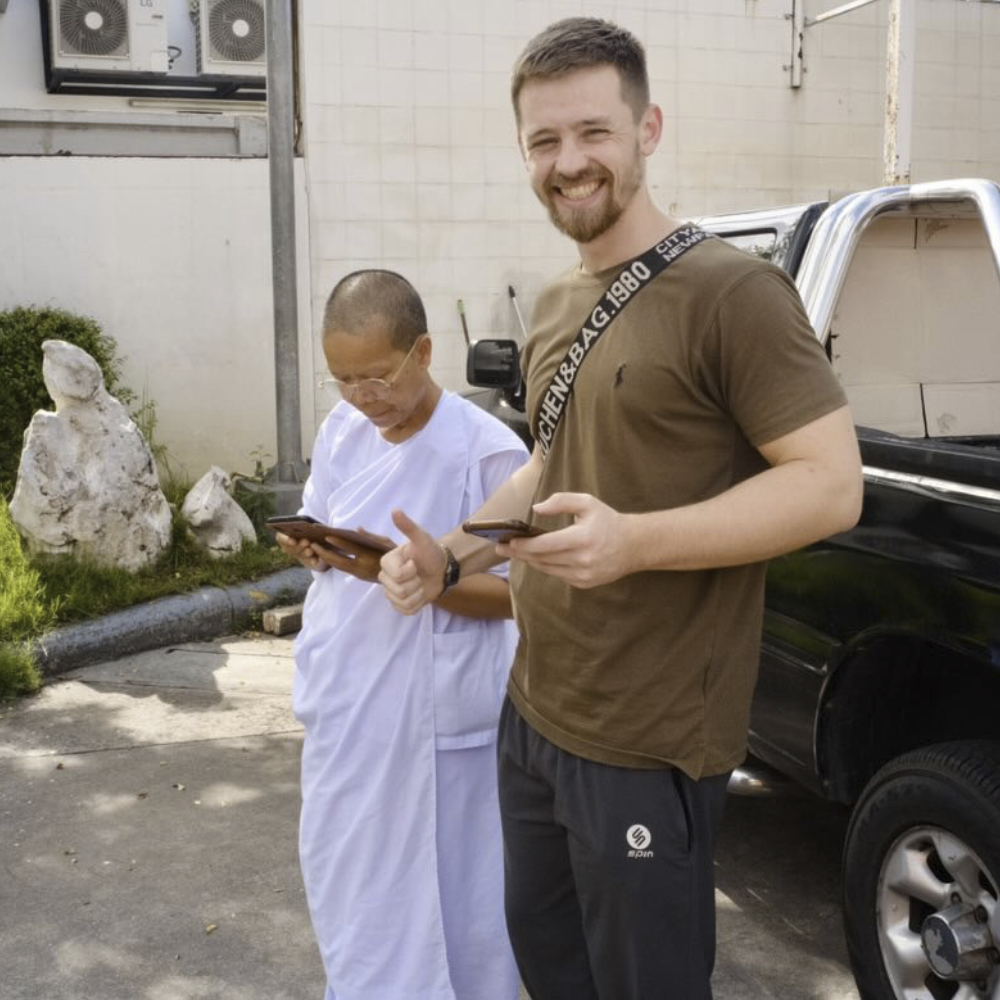
I’m Harry – and I was tired of the same old “10 best places I’ve never been but I’m writing about for some reason” blog posts. So… I’m a young traveller on a mission to travel the world and share my true, unfiltered experience, including all the gristly details. From packing my life into one bag for a year, to traveling Vietnam by motorbike, to sorting out Visas for specific countries – I’ve done it all, am doing it all and only give my advice on things I have done – not regurgitated cr*p from another source *cough* most publications *cough*. So bear with us! This project will take some time to grow, and will take a fair bit of money. But I’m determined to make it the single best source of information about traveling on the internet.
